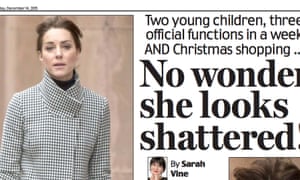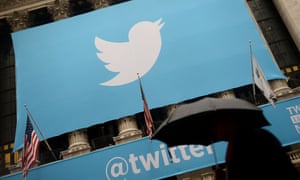 Read the report and answer the questions on your blog.
Read the report and answer the questions on your blog.
1) Why are respected news brands good news for Twitter?
The combination of news brands and Twitter helps keep people like chief executives informed and opinionated. Each helps the other to grow its audiences and influence. 62% of newspaper followers think it’s important that news on Twitter is verified by a respected brand. The insights from this study show that Twitter and news brands are most definitely stronger together. This collaboration between News works and Twitter really captures that special connection. 59% of Twitter users follow newspaper brands. People like to follow the news as it happens; like to see it breaking on Twitter; and enjoy the combination of Twitter and news content
2) Why in turn is Twitter good for respected news brands?
The relationship between news brands and Twitter is perfectly balanced: 64% of newspaper followers say Twitter helps ensure that established news brands continue to resonate with new audiences. Critically for the industry Twitter brings new readers: 60% of UK news brand followers say they follow newspaper brands that normally they wouldn't read in print. Almost 60% of all Twitter users in the UK follow some form of news brand content. On top of this, most of the remaining users will access news brand generated content via posts, retweets and general debate and discussion. Overall, more than a third of Twitter users follow one or more main news brand titles, around half this number follow a sub brand or special interest handle, and half of them follow one or more newspaper journalists.
3) The report suggests that old and new media “are not, in fact, in direct competition, but often work extremely well together to enhance both the media eco-system and the consumer experience”. What evidence do they provide to support this idea? Do you agree with it?
Today, news brands make a good partner with Twitter because they are both together able to cope with the demands that the audience provide for example, we expect news faster, more frequently and with immediate accuracy. News titles are expected to herald stories the moment they arrive and then live blog them as they unfold. More than one in 10 of the news brand followers on Twitter claim they were first introduced to it by their newspaper brand – that amounts to hundreds of thousands of Twitter users. News brands also increase traffic as four in 10 agree they check Twitter frequently to see what is going on with their favourite newspaper brands. News brands drive Twitter activity and this is what helps make news brand followers such a valuable audience for Twitter. They are three times more likely to retweet than non-followers; four times more likely to post links to articles and three times more likely to tweet about trending news topics. They are also far more likely to share their thoughts and reply to opinion about the news. This means that news brand followers visit Twitter more often - they are 60% more likely to visit on a daily basis than non-followers and more than twice as likely to post on a daily basis. As we can clearly see, this provides excellent promotion for the newspaper brands, driving readership to both on-line and print.
I agree that the old and new media are working well together to enhance both the media eco-system and the consumer experience. As we can see from twitter and news brands, they are both helping each to gain popularity and to consumers. They work well to keep the audience engaged on what they provide and are helping each other out to a certain extent.
4) On page 24/25 of the report, the focus turns to 'gossip' or 'banter'. What example tweets from journalists are used to illustrate this?
- Tom Newton Dunn @tnewtondunn • Feb 12 "Biggest cheer at the Emirates tonight by #AFC? To an announcement for the MUFC away fans that no more trains leaving Euston"
- Grace Dent @gracedent • Nov 6 "I reveal the shocking truth behind Jennifer Aniston’s new hair http://ind.pn/HJXtV9"
- Caitlin Moran @caitlinmoran • Jan 11 "The most amazing thing about the story of President Hollande having an affair is that he apparently only has one pair of shoes."
5) Do you think the increasing amount of 'gossip' or 'banter' is harming the reputation of news and journalists?
No. Gossip and banter about celebrities, sports or political scandals are all part of the entertainment and are often turned to when news brand followers want to relax. They are looking for both humour as well as ‘backstage access’ into the lives of the people and things they are interested in. Individual journalists are key contributors to the humorous content on Twitter. At the end of the day, when people tend to be in relaxation mode, there is a greater role for gossip, banter and other entertainment-led activities. “The comments section on The Mail is a treasure trove for comedy. There are Twitter accounts dedicated to the comments section."
6) What does the report say about trust in Twitter and journalists (look at pages 34-39)?
The report explains that, in the large part, the relationship between Twitter and news brands - and how it impacts on the relationships both have with their readers and users - is founded on trust. “It is important that news on Twitter is verified by a respected brand”. Most twitter and news brand users say that it is important that news on Twitter is verified by a respected brand as this helps build trust in the content.
7) Finally, do you think new and digital media developments such as Twitter have had a positive or negative impact on traditional newspapers?
I think such developments have had a positive impact on traditional newspapers as now more and more people are reading the news. Journalist are still able to break stories, offer an insider view and include their personal views. Twitter is helping to make news brands more accessible, more influential and more connected than ever before. The immediacy and accessibility of Twitter brings valuable readers to newspaper brands that they would not normally read in print or directly on-line. Even though people are not reading newspapers as much, news is still being provided to the audience through this virtuous circle.













